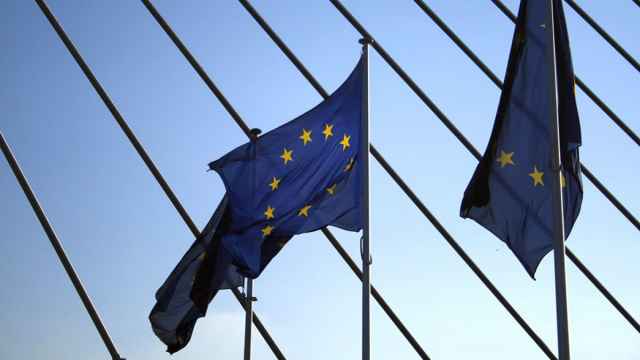French authorities on Tuesday accused Russian military intelligence of being behind a series of cyberattacks against the country over the past decade, including against an organization involved in the 2024 Paris Olympics and President Emmanuel Macron's first presidential campaign.
Since 2021, a branch of Russia's GRU military intelligence service dedicated to cyberattacks has also targeted a dozen French entities, including the "defense, financial and economic sectors," France's Foreign Ministry said.
"France condemns in the strongest terms the use by Russia's military intelligence service of the APT28 attack group, at the origin of several cyberattacks on French interests," the ministry said in a statement.
The GRU "has been carrying out cyberattacks against France for several years using a method known as APT28," French Foreign Minister Jean-Noel Barrot wrote on X, officially attributing the cyberattacks to Russian military intelligence for the first time.
APT28, also known as Fancy Bear, has been linked to dozens of global cyberattacks, including the 2016 U.S. election, when it was accused of aiding Donald Trump by leaking Democratic Party emails and those of Hillary Clinton's campaign.
The group targets personal email accounts to retrieve data and emails or gain access to other machines on a system.
In 2017, hackers targeted Macron's first presidential run, leaking thousands of documents barely 24 hours before the vote.
"In the midst of the presidential election, APT28 participated in a massive hacking operation" to sow doubt and influence public opinion, France's Foreign Ministry said.
"Thousands of documents were stolen and disseminated in the hope of manipulating voters, but the maneuver failed to have any real impact on the electoral process," it added, referring to the 2017 leak.
The ministry said that entities in France that have been targeted since 2021 also include those "working in the daily lives of French people... public services, private enterprises, as well as a sports organization involved in the 2024 Olympic and Paralympic Games."
In September 2024, several international intelligence services, including those in Germany, warned of the risk of cyberattacks targeting NATO countries.
"Alongside its partners, France is determined to use all the means at its disposal to anticipate Russia's malicious behavior in cyberspace, discourage it and respond to it where necessary," France's Foreign Ministry said.
A Message from The Moscow Times:
Dear readers,
We are facing unprecedented challenges. Russia's Prosecutor General's Office has designated The Moscow Times as an "undesirable" organization, criminalizing our work and putting our staff at risk of prosecution. This follows our earlier unjust labeling as a "foreign agent."
These actions are direct attempts to silence independent journalism in Russia. The authorities claim our work "discredits the decisions of the Russian leadership." We see things differently: we strive to provide accurate, unbiased reporting on Russia.
We, the journalists of The Moscow Times, refuse to be silenced. But to continue our work, we need your help.
Your support, no matter how small, makes a world of difference. If you can, please support us monthly starting from just $2. It's quick to set up, and every contribution makes a significant impact.
By supporting The Moscow Times, you're defending open, independent journalism in the face of repression. Thank you for standing with us.
Remind me later.






